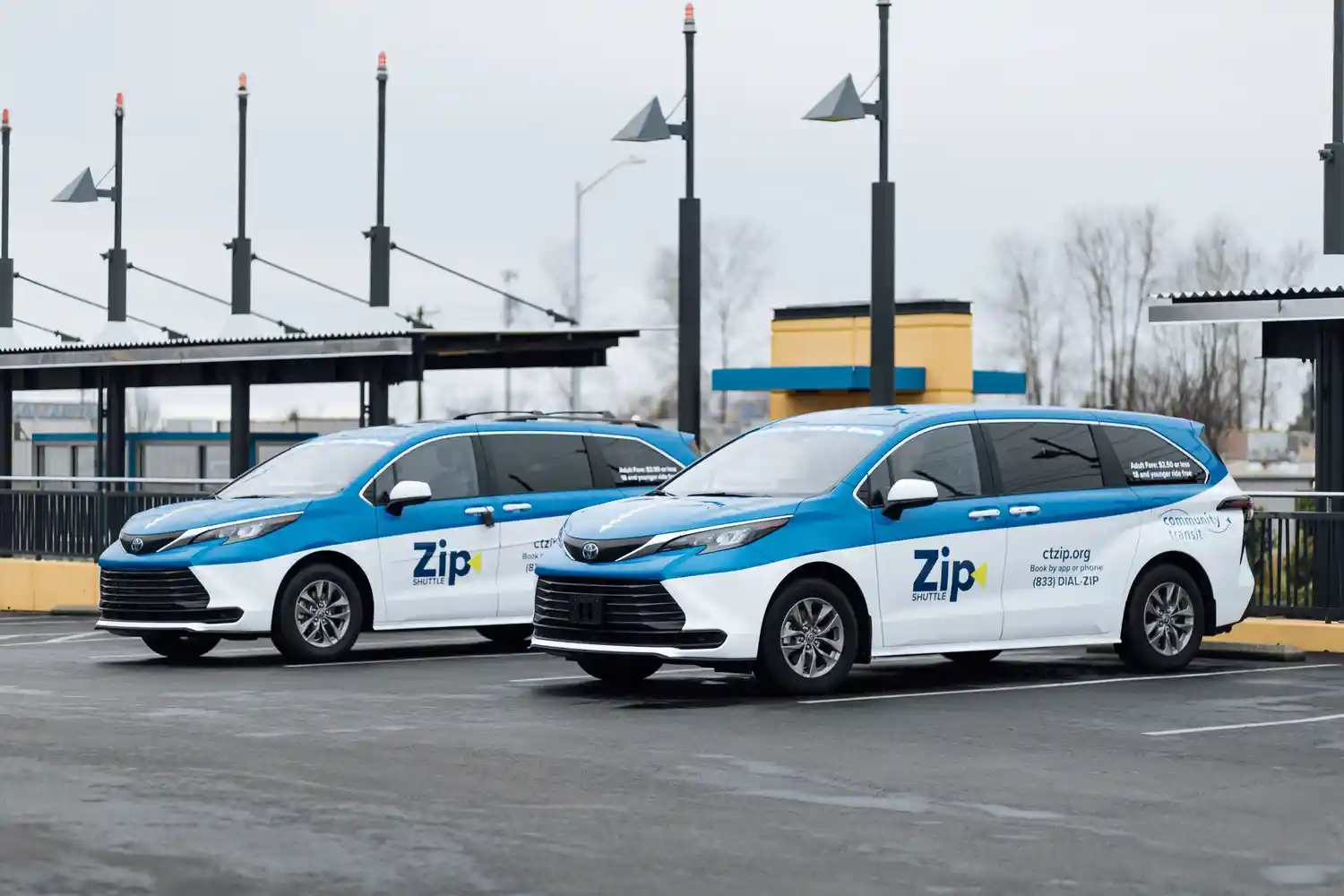Getting around Arlington with Community Transit

Community Transit is here to get you where you want to go. We are proud to be a part of the Arlington community — we live here, ride here, and drive here. Wherever you need to go in Arlington, feel good about how you get there.
About Arlington
Arlington lies on the Stillaguamish River in the western foothills of the Cascade Range and is home to many regional destinations. People traveling to and from the area can choose from a robust bus and ferry network, the expanding Sound Transit commuter train, and express bus routes adjacent to the city of Marysville. Smokey Point Transit Center is a major hub for many of these regional transit options, including Community Transit buses, DART paratransit service, and Vanpool riders. The Snohomish County Centennial Trail also offers nearby options for pedestrians and bikers.

Get around easier with Zip Shuttle
Our Zip Shuttle on-demand rideshare service is available in Alderwood, Lake Stevens, Arlington, and Darrington to get you around town for the same price as local bus fare!



